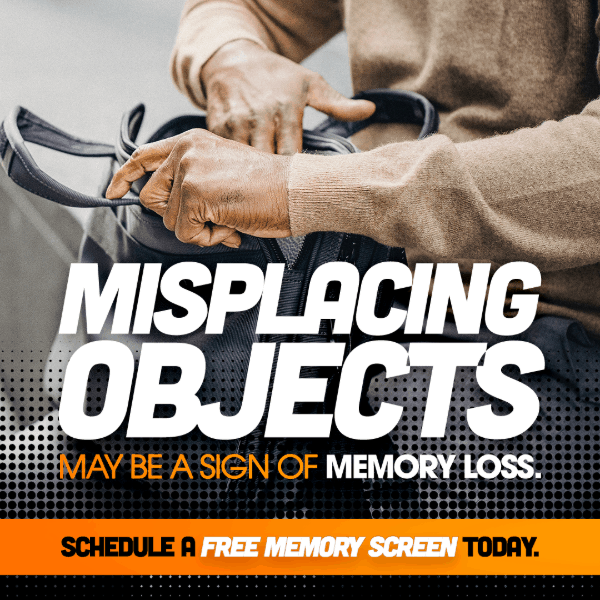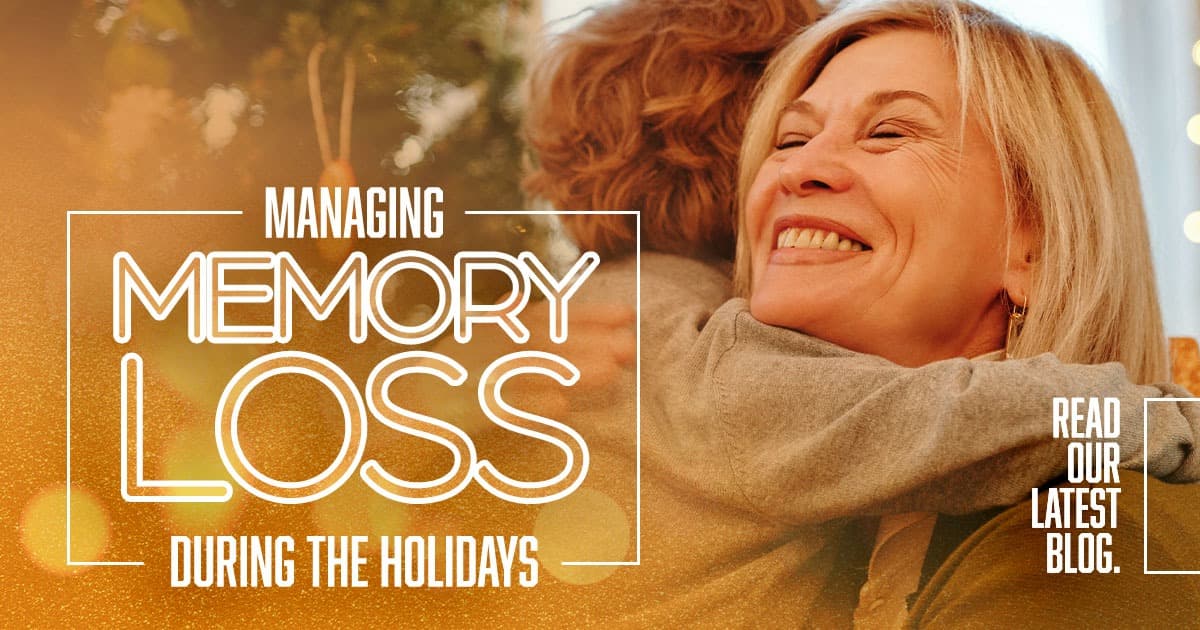There’s a lot to think about during the holidays, and being a caregiver for a loved one with memory loss can seem daunting. In addition to the stress and emotional toll this time of year can take, keeping everyone safe during the pandemic is an added hurdle. Despite the challenges of memory loss during the holidays, continuing to celebrate special moments with our loved ones is the best gift we can give them.

Adjust Expectations to Keep the Calm
Older adults, especially those with underlying health conditions, are at increased risk for developing the more severe form of COVID-19. Any in-person gatherings should be avoided unless it is with the same household you are in. Telling relatives they cannot physically be with your loved one is a hard pill to swallow, but the alternative is always worse.
Start early by setting expectations for everyone. Create a Facebook or other social media page for the family where you can post updates, go live, and share photos and memories of the days ahead. Ensure an enjoyable holiday season with a few of these tips:
- Make the family aware of the changes your loved one has experienced since their last interaction.
- Plan activities earlier in the day since those with memory issues become more tired and restless as the day goes on.
- Consider a holiday parade for the family outside the home. Make signs and decorate vehicles.
- Drop off care packages with favorite baked goods and other treats.
- Offer suggestions for gifts your loved one can use and are meaningful. Large print books, a new digital clock, fuzzy socks, or a robe are good ideas.
- Plan a video call to watch a movie or make a particular recipe together. You can do one family at a time, allowing for individual attention and time.
Managing Yourself
As a caregiver, you must take care of yourself first to provide the best care to your loved one. Give yourself the grace to do only what you can adequately and safely manage. Ask for help when you need it and take breaks so you can relax and recharge. Don’t feel guilty if you forget something or aren’t able to get to everything you wanted.
Memory Issue Concerns

Occasional forgetfulness and memory issues are typical as we get older. However, Alzheimer’s disease and other dementias are progressive and affect a person’s ability to carry out everyday tasks. If you have a family history of AD, you may be at increased risk for developing it and should be checked annually for memory issues. Schedule your free memory screening here at Pacific Research Network, call .
References:
https://www.allegroliving.com/when-memory-loss-affects-holidays.html
https://www.aspiredlivingprospectheights.com/news/item/9-ideas-managing-memory-loss-during-holidays


